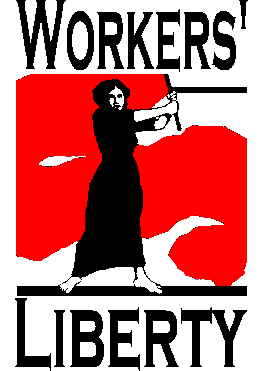
 |
Workers' Liberty'the emancipation of the working class must be the act of the working class'Workers' Liberty Australia |
back to WL Australia front page
| October
2000 newsletter
on other pages #S11
the left and S13+: returning to normal by Martin Thomas |
further down
this page Take the struggle against global capital into the workplaceby Janet Burstall The infection of unions with radicalism from the success of S11 is by no means automatic. S11 has been treated with ambivalence by union leaders. Although Victorian Trades Hall Council organised a rally and march on S12, it stated - repeatedly - that it was a rally and not part of the blockade. The VTHC kept union organisation separate from S11 organisation. Some individual union leaders were highly supportive of the blockade, most notably Michele O'Neil, Vic Secretary TCFUA (Textile workers' union). In NSW the unions joined in the S11 Alliance, but banned the socialist left from its meetings. The socialists met separately in CACTUS (Campaign Against Corporate Tyranny United in Struggle). Whilst there were statements of support for the S11 protest from union leaders in NSW, the attitudes were mixed. On the one hand, the radicals of S11 and the anti-corporate protests offered the unions a possible source of that ever-elusive community support. On the other hand, the activists pose a challenge to the ideas and perspectives of union officials, and by implication to their positions of influence and privilege in the movement. But the infection of the S11 activist groupings with working-class politics is no more automatic than the radicalisation of the unions. Whether the post S11 activists can even cohere around further projects in the next few months looks doubtful. The S11 activists who are also unionists have an opportunity to organise support for rank and file challenges to global capital within their unions. Out of this could emerge new debates and struggles for a recharged working-class movement. Unions: beyond skirmishesby Janet Burstall IBM Global Service Australia employs 4000 Telstra workers outsourced in 1997, and a number of other workers employed since. The Telstra workers' union, the CPSU Communications Section, is demanding a pay rise, more control over working hours and significantly - the right of new IBM GSA workers to be included in the CPSU's conditions. The dispute demonstrates the need to fight Reith's new proposals to strip workers of pay and conditions when they are 'outsourced' with their jobs. Reith's proposals were released in a 'Ministerial Discussion Paper on Transmission of Business Laws.' If these proposals had been law in 1997, then the 4000 IBM GSA/Telstra workers would have been stripped of their Telstra pay and conditions then. Reith has shown that he will keep attacking union rights to organise workers and defend pay and conditions. The unions continue to resist individual instances or Reith's legislation proposals, and their application by employers. Commonwealth Bank workers have forced the withdrawal of individual contracts which the Bank tried to impose under Reith's laws. Through a combination of stopworks and strikes, and an application to the Federal Court, the Finance Sector Union won a court order applying to 22,000 Commonwealth bank workers, ordering the Bank to withdraw the individual contracts. This is good news. The unions' skirmish by skirmish approach may hold off Reith indefinitely, but it is risky in that it allows Reith to plug away until he finds a decisive opportunity. The need is to be able to galvanize the whole union movement to resist as one and defeat Reith, but the ACTU strategy has avoided that at in all of Reith's previous attacks, and is not preparing this way for the future. Pressure from the Government and capital on wages, jobs and unions is likely to intensify, with signs that economic growth is faltering. Building approvals are down, the Australian dollar is falling, and the Japanese economy is slowing. The Reserve Bank is balancing currency rates, inflation and interest rates, to manipulate employment levels to support the Government’s and employers’ push down on wages - all to create a predictable environment for profit-making. While unemployment is somewhat lower around Australia, underemployment is up, with the effect that job insecurity is just as high. The threat of major closures and job losses is in the air, with South Australian Mitsubishi production under review. The ACTU plans to launch a Living Wage Campaign before the end of the year, but this is likely to be a court application with no serious mobilisation of unions to demand it and to win a significant increase. The right to organise, to collectively bargain, to job security and to decent pay and conditions are all on the unions’ agendas. What are the prospects for a move beyond defensive skirmishes to victorious campaigns? S11 can inspire workers The unions are stuck in a pattern of defensive skirmishes, trying to avoid serious confrontation with bosses and the government. Whether this situation is ended by an intitative from our enemies, or from within the labour movement, depends on whether or not the militants and the left activists in the unions can recharge the movement |